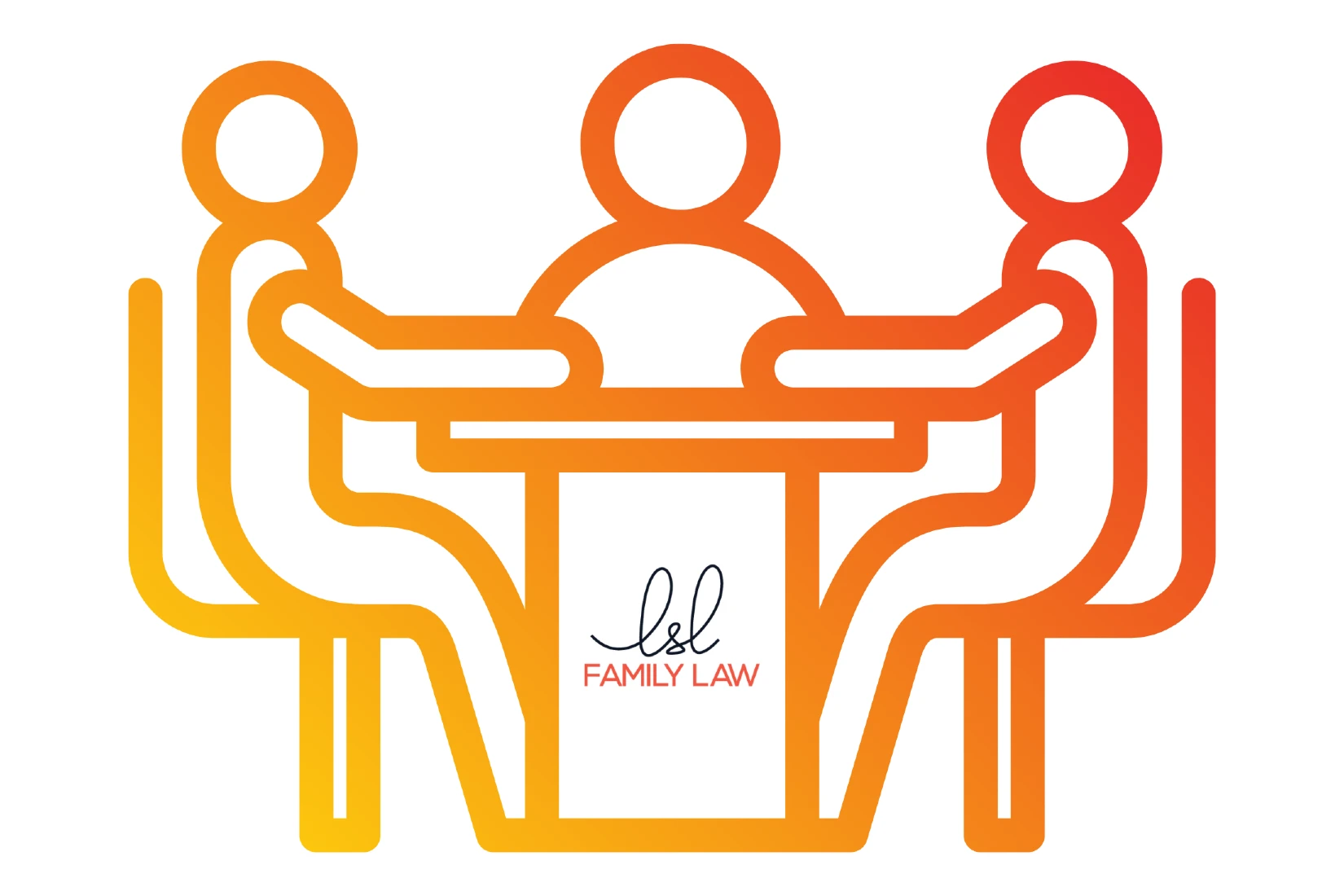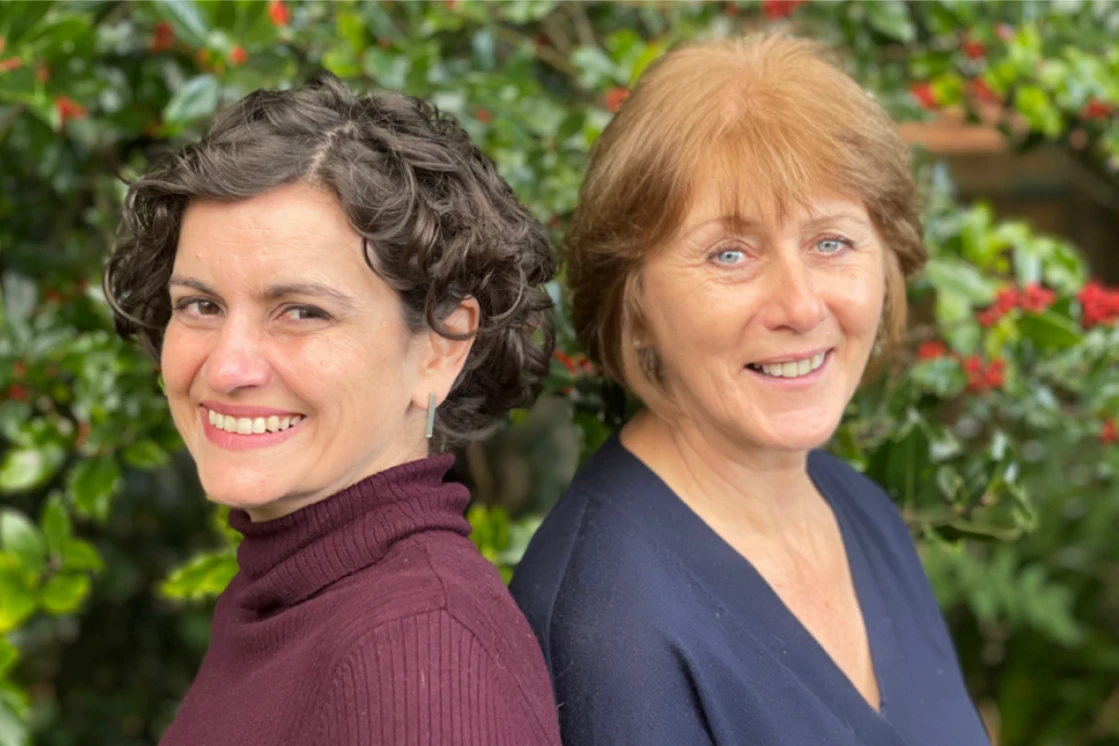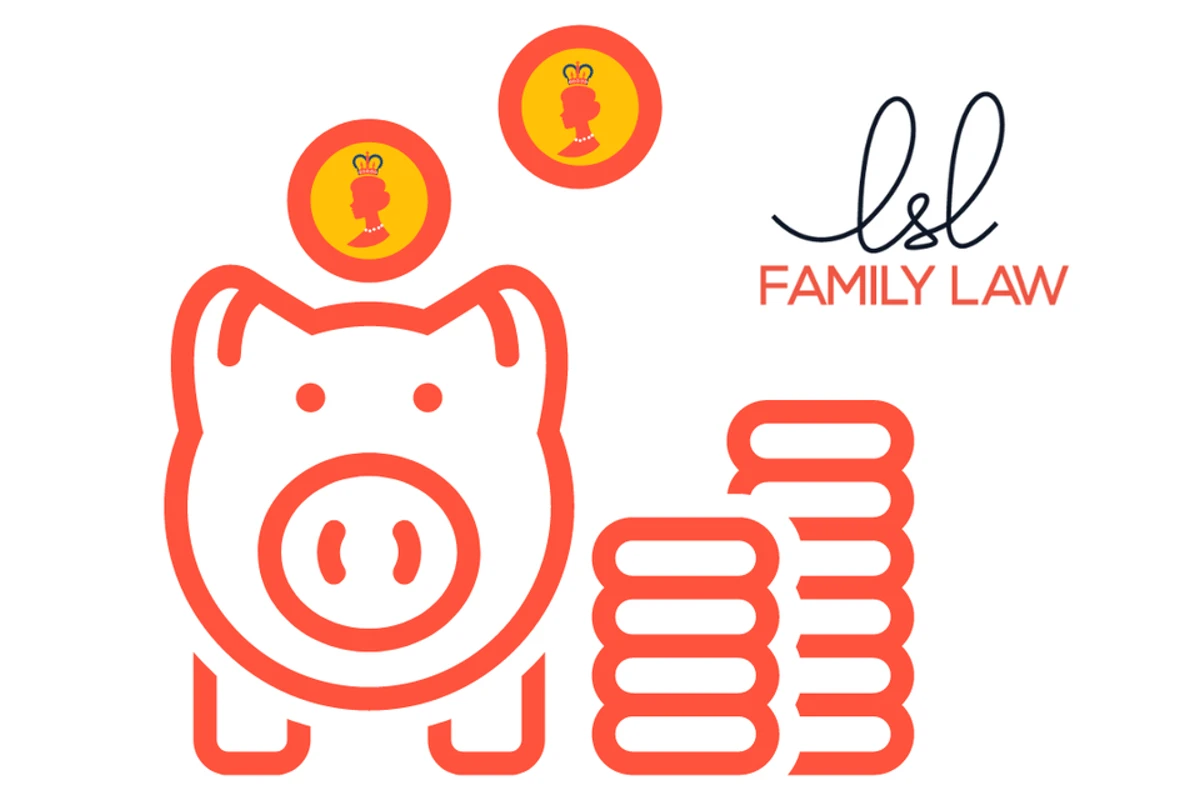In January 2022, we launched our regular podcast with an episode dedicated to Family Mediation Week! If you missed the original podcast, you can listen here or read on to find out why Linda Lamb and Tanya Foster are advocates of family mediation and how mediation might be able to resolve your family matter.
What inspired Linda and Tanya to become family mediators?
Linda was already an experienced family law solicitor when she embarked on family mediation training in 1999 (with a six-month-old baby in tow!). Conscious that traditional family law pathways often had a negative impact on long term family relationships, Linda was delighted to discover that family mediation resonated with her professional ethos and thought “Yes, this is definitely the thing for me. This is how family law should be done!” Over the years, Linda has advanced her family mediation qualification by becoming an accredited mediator. Linda always keeps an eye out for new, emerging forms of mediation and, if she believes that they will be helpful to her clients, she undertakes the training. This has been the case with both hybrid mediation and child inclusive mediation.
During the early stages of her mediation career, Linda regretted the lack of input that children had in the process and felt that their involvement could be helpful (at the time, there was no avenue for a child’s voice to be heard other than in court proceedings). The advent of child inclusive mediation has radically altered the mediation landscape. Child inclusive mediation gives children the opportunity to speak to someone who is completely neutral, to share their views about what is happening to their family and to have the support of someone who knows what they are going through. Linda has undertaken several CIM cases recently and says that you can see the relief on the children’s faces when they can finally speak openly about how they feel. Often, children tell their parents what they think they want to hear rather than the truth. Discussions between children and the mediator are private (unless safeguarding issues arise); children can speak in confidence to the mediator, in the knowledge that nothing they say will be revealed to their parents unless they specifically instruct the mediator to do so.
Tanya qualified as a family law solicitor twenty years ago. She was relived and delighted to accomplish her long held ambition to train as a family mediator last year. Tanya, like Linda, believes that it is vital that a couple can maintain a positive post-separation relationship, especially when children are involved. Mediation is a way of helping a family that can be really satisfying for the both participants and their respective solicitors. It’s all about finding a way of going forwards, together.
The benefits of family mediation
“Mediation can make the difference when lawyers reach the point where they can’t get any further.” Tanya Foster, LSL Family Law.
Mediation can improve communication between the couple which is incredibly important, especially if they have young children. Moreover, mediation tends to be cheaper than going to court because the process typically involves one mediator with lawyers potentially providing advice in the background. In addition to being less costly than court, mediation can be adapted to fit the needs of the couple. The couple can determine the speed at which the process happens. Quite often, one half of the couple is further ahead emotionally than the other and mediation sessions can be staggered to create space for the other half to catch up.
Crucially, family mediation gives the couple choices. If you end up going to court, your personal choices are taken away – somebody else will tell you what to do with your life. The mediation process is designed to enable couples to work together and make decisions which will benefit the whole family.
Mediation also provides a forum for parents to discuss child arrangements as their children develop. If the separation occurs when their children are young, there will be many changes before they hit the teenage years.
By choosing mediation, the couple will not miss out on expert advice. Mediation is just as thorough as going through the court process; you can access a range experts to provide specialised advice and financial disclosures are still exchanged.
Which experts are involved in the mediation process?
Lawyers and mediators can’t provide clients with everything they need, so they call on others with specific skillsets. Our website features an Our Extended Family page featuring independent financial advisors, family consultants, divorce and co-parenting coaches, counsellors and therapists. Not everyone will require all of these services, but clients can see what support is available to them and make choices accordingly.
Choosing the right mediator for you and your family
A good working relationship between the mediator and the family is essential. Linda and Tanya recommend speaking with two or three mediators and making sure that you both feel comfortable with that person. If one of you isn’t comfortable then the process won’t work as smoothly. Make sure you try before you buy and achieve a good fit for your family.
How does the mediation process start?
The initial step is for each party to have a telephone call with the mediator so that they can ask some questions and find out about the mediation process. It is also an opportunity for the mediator to determine whether mediation will be a suitable pathway for the family.
The second step is a one-to-one meeting for each party with the mediator. This isn’t part of the mediation process as such, but it lays the foundations. It is important for people to be able to speak freely about what has been happening, what their experiences have been and to discuss what mediation will entail and how it might assist them.
Providing that everyone is happy to proceed, a joint meeting is arranged between both parties and the mediator. These days, the meetings usually take place online which is very convenient. Over a series of joint meetings – as few or as many as that particular family needs – there will be conversations about pertinent matters e.g., finances and child arrangements. The beauty of this system is that different ideas can be explored and tried on for size to see if they will help the family move forwards.
What are the advantages of online mediation?
Although the traditional concept of mediation is a face-to-face meeting, the past two years have transformed the way we live our lives and online mediation is now mainstream. Online mediation has the distinct advantage that people can join a meeting from a place that makes them feel comfortable and at ease. The initial one-to-one meeting with the mediator enables basic issues to be ironed out such as whether WiFi connections and devices are going to work. There is none of the awkwardness of meeting an ex-partner in person at a meeting after months of being apart, or feeling stressed about how they are going to leave. People can feel relaxed and supported in their own environment. There is no commute or panic about finding the right building and the meetings can be held at times which suit everyone involved.
International family mediation
The benefit of being able to create a virtual meeting room is that one, or both parties, can be on the other side of the world from the mediator. Years ago, international family cases involving children tended to go straight to court because geography excluded the possibility of mediation. Now, with online mediation, there are no such barriers, and it is encouraging to see that more people are trying to resolve their issues without going to court. If an agreement is reached through mediation, it is still possible to draw up an order but you don’t have to set foot in a court room to achieve it. This is a much better outcome for the couple and for any children involved because they can see that their parents are communicating effectively.
The Family Mediation Voucher Scheme
The Family Mediation Voucher Scheme was designed to help couples who are making arrangements for their children in the context of mediation. The scheme offers families a £500 voucher towards their mediation fees which makes a significant dent in the overall cost. LSL Family Law has signed up to the scheme so that families discussing arrangements for children can take advantage of the financial assistance on offer.
The role of family lawyers in the mediation process
Sometimes, lawyers are concerned that if they recommend mediation, they are going to lose their client. This is not the case. The role of the mediator is to enable good communication. Lawyers are still needed to provide good quality legal advice. As a mediator, you can’t do this: you can provide information, but you can’t give independent legal advice to both parties. As a lawyer, sending a client to mediation doesn’t mean that you lose them, it means that you have a happy client who will refer more people to you in the future.
Lawyers should feel reassured that sending clients (where appropriate) to mediation is the right thing to do. If people have an awful divorce, it is a very hard thing to get over which, of course, has an impact on any children involved. It’s not right that adult children dread inviting both parents to a family event decades after the separation! As lawyers, we need to take responsibility for the longer-term issues. By recommending mediation, you are providing a really good service to your clients.
There is also the option of solicitor inclusive or hybrid mediation. The hybrid model enables a couple to involve their respective lawyers in the mediation sessions. This is particularly helpful in complex cases or if one half of the couple is vulnerable and would benefit from having legal advice as they go along.
Ultimately, lawyers and family mediators need to work together in the best interest of the families.
Families come in different shapes and sizes
Whatever dynamics there are and regardless of the shape your family takes, mediation can help to make your situation work. Family mediation isn’t the preserve of heterosexual couples, with same sex couples equally seeking advice on child arrangements or finances after separation. Linda has also acted as a mediator in several cases involving parents and grandparents. Grandparents play an incredibly significant role in the lives of children. They tend to be more neutral and sometimes it is easier for a child to speak with their grandparents than their parents. Extended parenting of children may also be a factor, as in the case of children preferring to live with an adult sibling rather than their parent.
In certain situations, it can be useful to include a parent’s new partner in the mediation sessions; the positive influence of a new partner can radically improve family communication. New partners are directly involved in the parenting and the children often like them! As a mediator, you have to remain open minded and not just focus on the separating couple. Including other members of the family in the sessions can break a deadlock and smooth things over.
Meet our family mediators!
Linda Lamb is the director of LSL Family Law, an accredited family solicitor with Resolution, a children arbitrator, a collaborative lawyer, and an accredited family mediator with the Law Society and the Family Mediation Council. Linda is qualified to provide child inclusive mediation and hybrid (solicitor-inclusive) mediation.
Tanya Foster is a consultant family lawyer at LSL Family Law. An accredited family solicitor with Resolution (specialising in private children law and financial provision), Tanya qualified as a family mediator in 2021.
If you would like to discuss your family situation and find out whether mediation might be the right pathway for you, please give our team a call on 01273 041011.
Useful websites & media resources
Mock Family Mediation – Family Mediation Week (2021)
Chloe’s Story – Family Mediation Week (2021)
The Rights Idea? Children’s rights when parents separate: Tom’s story (2021)






